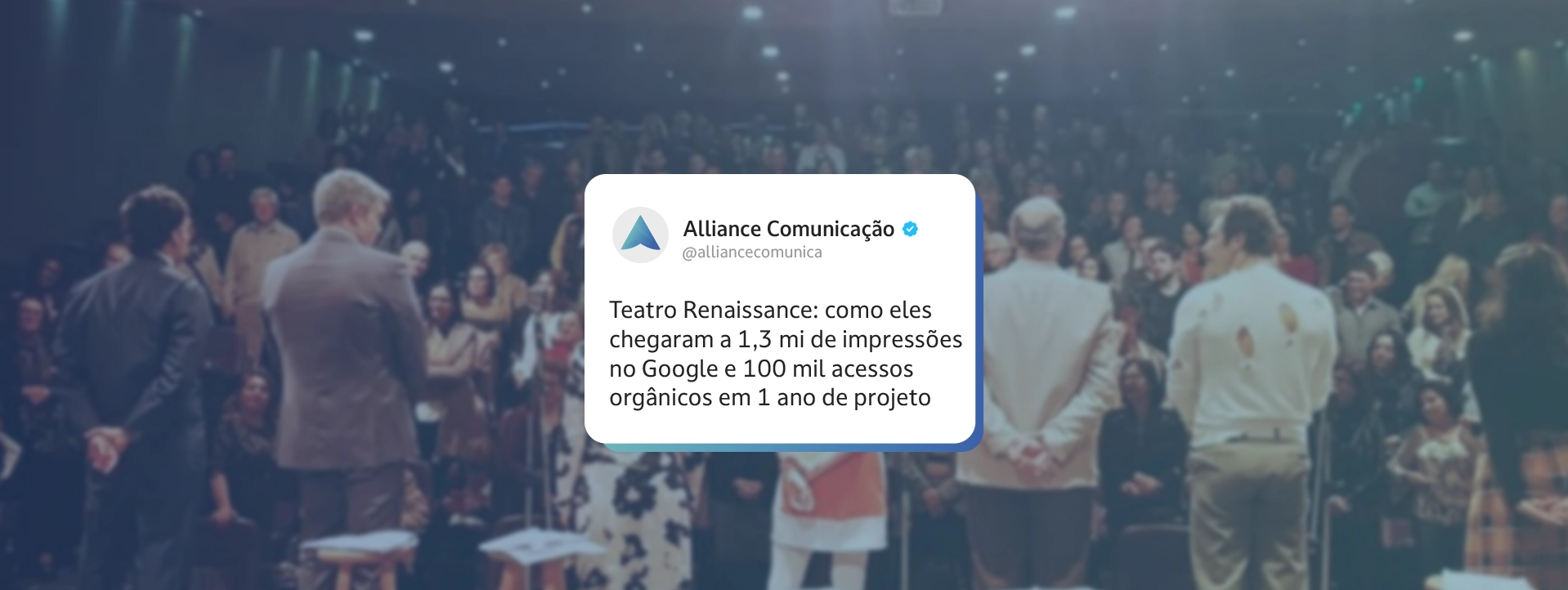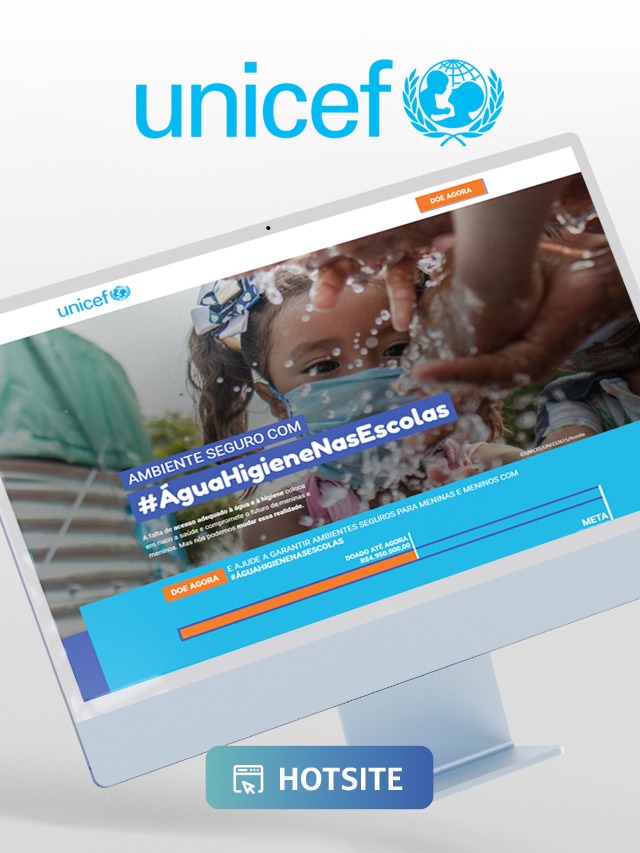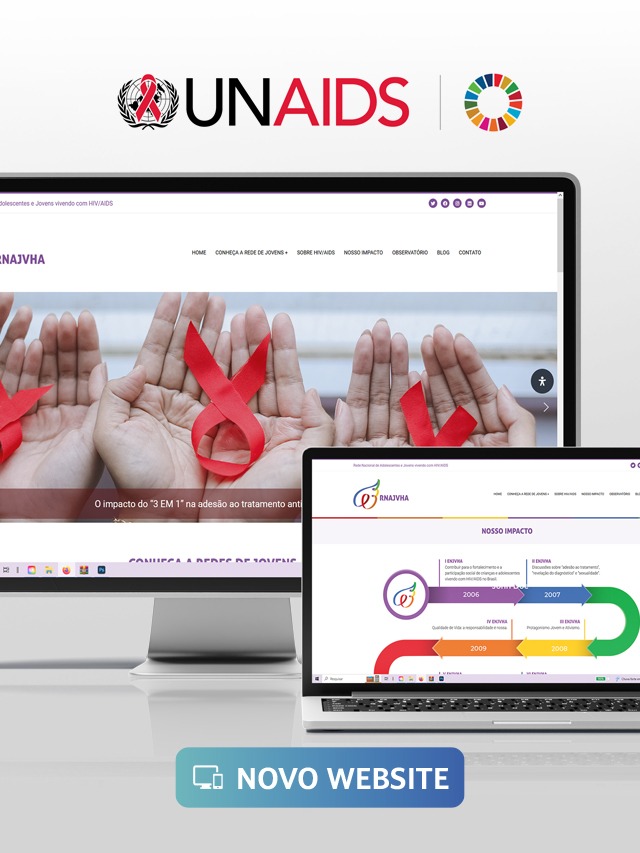an agency
that creates connections
an agency
that creates connections
meet our
portfolio


13 years
of experience


full agency
and multidisciplinary


compliance
corporate governance


dashboards
exclusive


agency
cloud connected
cases
Of success


Success story Teatro Renaissance: how they reached 1.3 million impressions on Google and 100 thousand organic hits in 1 year of the project
The city of São Paulo is known for its great cultural diversity. From the center to the outskirts distributed in its four corners, every day one


Trinidad Imóveis success story: how they generate more than 1,000 leads per month with a CPL (cost per lead) below R$ 0.50
Achieving a positive Return on Investment (ROI) is a source of joy for every manager. However, can you imagine having a cost of cents to


Inovar Ambiental success story: how they had 1.6 million impressions on Google and 35 thousand organic hits in the last 12 months
Billions of searches are performed each day on Google. Some studies even point out that the search engine processes more than 8.5 billion searches


Renaissance Theater Success Story: How they grew 186% followers, 640% reach, 590% engagement, and 3,649% comments organically on Instagram
The essence of social media is interaction between users. With that, more important than publishing is practicing the exchange and creating



Receive weekly rich content on the main topics that address the 70 years of marketing evolution: from the focus on the product to the concept of human centrality.
Embark on this journey,
Register!
Alliance Comunicação is part of the UN Global Compact, the world's largest corporate sustainability initiative
Embark on this journey,
Register!
- The Evolution of Marketing 1.0 to 5.0
- Technology for humanity
- The Generation Gap – Marketing to Baby Boomers and Generations X, Y, Z, and Alpha
- The influential digital subcultures: youth, women and netizens
- The new way of the consumer
- The Marketing Paradox for Connected Consumers
- Power shift to connected consumers
- How to create inclusiveness and sustainability for society
- How to make technology more personal, social and experimental
- The same strategy does not work for everyone
- Industry archetypes and best practices
- Customer experience (CX) – Machines are cool, but humans have emotions
- Human-centric marketing for brand attraction
- Omnichannel marketing for brand engagement
- Content marketing for brand curiosity
- Engagement Marketing for Brand Affinity
- Data-Driven Marketing – How to Create a Data Ecosystem for Better Target Market Selection
- Predictive Marketing – How to anticipate market demands with proactive actions
- Contextual Marketing – How to Create a Personalized Perception-and-Response Experience
- Augmented Marketing – How to deliver human interactions empowered by technology
- Agile Marketing – How to Run Bigger, Agile Operations



Embark on this journey, register!
Alliance Comunicação is part of the UN Global Compact, the world's largest corporate sustainability initiative
Receive rich content about the main
themes that address the 70 years of evolution
from marketing: from product focus to
concept of human centrality.
Embark on this journey,
Register!
- The Evolution of Marketing 1.0 to 5.0
- Technology for humanity
- The Generation Gap – Marketing to Baby Boomers and Generations X, Y, Z, and Alpha
- The influential digital subcultures: youth, women and netizens
- The new way of the consumer
- The Marketing Paradox for Connected Consumers
- Power shift to connected consumers
- How to create inclusiveness and sustainability for society
- How to make technology more personal, social and experimental
- The same strategy does not work for everyone
- Industry archetypes and best practices
- Customer experience (CX) – Machines are cool, but humans have emotions
- Human-centric marketing for brand attraction
- Omnichannel marketing for brand engagement
- Content marketing for brand curiosity
- Engagement Marketing for Brand Affinity
- Data-Driven Marketing – How to Create a Data Ecosystem for Better Target Market Selection
- Predictive Marketing – How to anticipate market demands with proactive actions
- Contextual Marketing – How to Create a Personalized Perception-and-Response Experience
- Augmented Marketing – How to deliver human interactions empowered by technology
- Agile Marketing – How to Run Bigger, Agile Operations
Alliance Comunicação is part of the UN Global Compact, the world's largest corporate sustainability initiative
Embark on this journey,
- The Evolution of Marketing 1.0 to 5.0
- Technology for humanity
- The Generation Gap – Marketing to Baby Boomers and Generations X, Y, Z, and Alpha
- The influential digital subcultures: youth, women and netizens
- The new way of the consumer
- The Marketing Paradox for Connected Consumers
- Power shift to connected consumers
- How to create inclusiveness and sustainability for society
- How to make technology more personal, social and experimental
- The same strategy does not work for everyone
- Industry archetypes and best practices
- Customer experience (CX) – Machines are cool, but humans have emotions
- Human-centric marketing for brand attraction
- Omnichannel marketing for brand engagement
- Content marketing for brand curiosity
- Engagement Marketing for Brand Affinity
- Data-Driven Marketing – How to Create a Data Ecosystem for Better Target Market Selection
- Predictive Marketing – How to anticipate market demands with proactive actions
- Contextual Marketing – How to Create a Personalized Perception-and-Response Experience
- Augmented Marketing – How to deliver human interactions empowered by technology
- Agile Marketing – How to Run Bigger, Agile Operations
Alliance Comunicação is part of the UN Global Compact, the world's largest corporate sustainability initiative
Alliance Comunicação has been part of Rede Brasil Pacto Global since 2020, a United Nations (UN) initiative to mobilize the business community to adopt and promote, in their business practices, 10 universally accepted principles in the areas of human rights, work, environment environment and fighting corruption. By joining the Global Compact, we committed ourselves to annually reporting our progress in relation to the 10 Principles. Thus, the initiative encourages the constant evolution of internal sustainability practices.
Alliance is ready to support your company in defining the strategy and awareness processes, public engagement through actions focused on influence, relationship and communication.


latest
News


Digital influencers: how they impact digital marketing strategies in Brazil
Since prehistoric times, the human species has come together in communities with common goals – and this pattern remains to this day. was the communication


Understand how WhatsApp Business adds value to your company's conversational marketing
According to the latest survey by the Mobile Time website in partnership with Opinion Box, WhatsApp is the application that Brazilians most


Understand the importance of social media to leverage the possibilities of your brand with a focus on B2B
Far beyond communication tools, social media can also act as great strategic differentiators to boost business, propagate ideas, sell products/services and more.


Strengthen your brand's digital presence by combining SEO and Google Ads strategies
Being present on Google can mean total lead capture or survival for many companies. As a result, many managers consider only the strategy
let's do it
business?
we are an agency
that creates connections
between brands, stories,
people and values!
Sao Paulo-SP
I have read and accept the Privacy Policy.

































